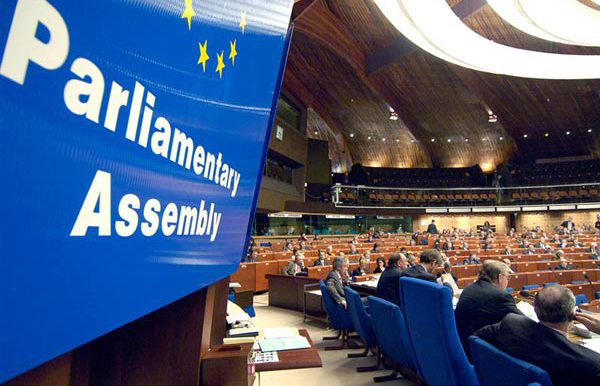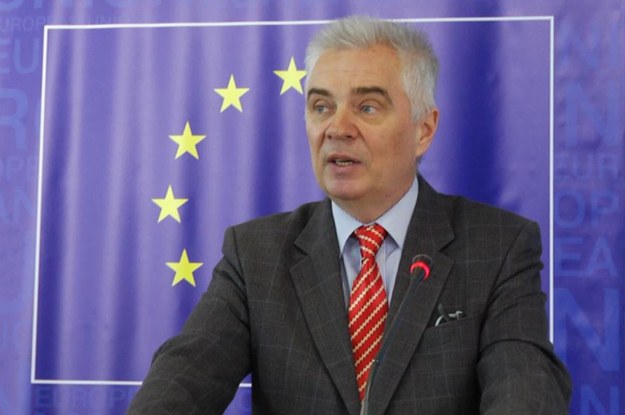BRUSSELS — The Parliamentary Assembly of the Council of Europe (PACE) adopted a resolution on the Functioning of Democratic Institutions in Armenia, adopting all amendments proposed by the Armenian delegation and rejecting the amendments proposed by the Azerbaijani side, head of Armenia’s delegation to PACE Ruben Rubinyan informs.
During the discussion, the co-rapporteurs and other speakers praised the democratic path and reforms chosen by Armenia.
The resolution mainly referred to the achievements of the democratic reform process in Armenia, future steps, electoral reforms, the mechanisms of checks-and-balances, judicial reforms, the general political atmosphere in the country, the situation of the media, as well as the strengthening of democratic culture in the political field.
In general, the Assembly welcomes the fact that Armenia has successfully emerged from the serious political crisis triggered by the outcome in the Nagorno-Karabakh conflict. The crisis was resolved with the early elections in June 2021, which were organized in a democratic manner, notwithstanding the highly polarized environment.
The Assembly also welcomed the pursuit of reforms, the launch of new projects since the change of political leadership in 2018 and the degree to which Armenia has co-operated with the Council of Europe, including at the level of its parliamentary delegation.
The Assembly noted that the recent conflict had a major impact on Armenia, as described in its Resolution on “Humanitarian consequences of the conflict between Armenia and Azerbaijan / Nagorno-Karabakh conflict.” In particular, it again expressed its consternation at the number of people killed from all sides and reiterated its demand for the return of all Armenian prisoners of war in accordance with paragraph 8 of the Trilateral Statement.
It also reaffirmed the importance of cultural and religious heritage and the urgent need to establish mechanisms required for its protection and restoration. It once again deplores the increasing number of speeches or acts that are not conducive to the easing of tensions or the establishment of normal relations between Armenia and Azerbaijan. In addition, the Assembly calls again on the Armenian authorities to release, without delay, all landmine maps in their possession to the Azerbaijani authorities.
It once again called for a just and lasting resolution of the Nagorno-Karabakh conflict, within the framework of the Organization for Security and Co-operation in Europe (OSCE) Minsk Group. Finally, it called for the implementation of the recommendations of the Commissioner for Human Rights contained in her memorandum on the humanitarian and human rights consequences of the conflict.
With regard to elections and electoral reform, the Assembly commended Armenia for the conduct of the last two national elections, held in December 2018 and June 2021, which were free of the irregularities that had tainted many elections in the past. As regards the snap election in June 2021, it is also pleased to note that the opposition has accepted the results, after having used the legal means at its disposal to challenge them, and has not boycotted the new parliament’s activities.
Overall, the Assembly welcomes the marked improvement in the electoral framework, both in terms of the legislation on political parties and the funding of electoral campaigns, and in terms of the voting system, as noted by the Venice Commission and the OSCE/Office for Democratic Institutions and Human Rights (ODIHR).
The Assembly called on the Armenian authorities to complete the reform of the electoral framework by taking on board the recommendations of the Venice Commission and the OSCE/ODIHR, in particular as regards providing a precise legal definition of campaign expenditure, abolishing the ban on bi-nationals standing for election, penalizing “slander” during election campaigns and enabling voters to challenge voting results in their constituency. It also calls on Armenia to implement the recommendation of the Congress of Local and Regional Authorities of the Council of Europe by ensuring all local elections are held on the same day and at least six months from parliamentary elections.










